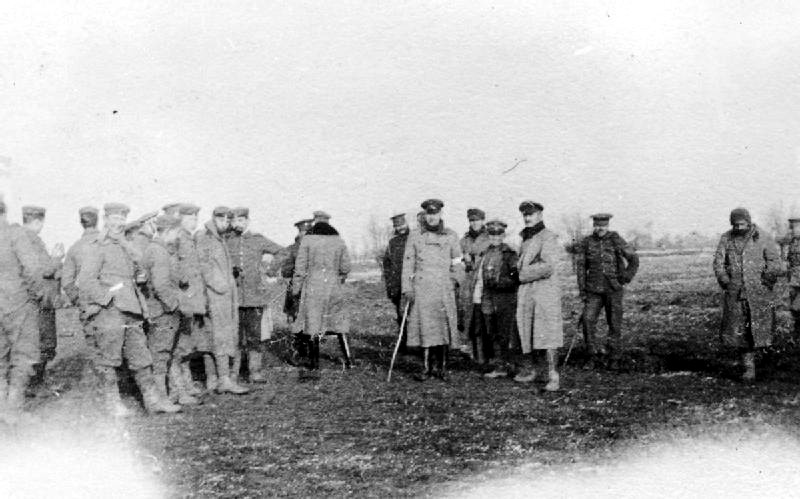 |
| Christmas Truce of 1914 |
I treasure holidays as an opportunity for reflection: an opportunity to reflect, yet again, on all that I, and my community, take for granted. Just as consciousness is always becoming, growing, and fostering, so is our understanding of our privileges. So many of us take for granted the reality that we'll never realize just how much we take for granted. The wisdom that we know next to nothing will ironically never cease to serve as an impetus and agent in the fostering of new knowledge.
My reflection intensified as some members of my friends and family exchanged racist and homophobic remarks and jokes during one of our gatherings, as I'm sure some of my colleagues and peers may have witnessed with their own friends and families. My siblings and I were fortunate enough to be gifted with a liberal education that inculcated a relatively greater respect for all human beings regardless of skin colour, ethnicity, gender, and sexual affinity. An education that itself is often underestimated; one that often contributes to the formation of impossible expectations for those without such an education such as of those making the racist and homophobic comments. I found myself in a situation where I had ample opportunity to unleash an indignant inclusivist self-righteous fury. But I didn't.
Because an "indignant inclusivist self-righteous fury" is an oxymoron. Militancy with regards to inclusivity can be both thoughtless and careless. As I stated in the forerunner to this blog post
"just as it's easy for the conservative to turn inwards, it's easy for the liberal to turn their back on the conservative. All you accomplish by turning your back on conservatives is to alienate, victimize, and thus, feed their conservatism even more. It's easy to mock Tea Partiers, but much more difficult to empathize with them - to invite them to come together for the benefit of all."
All I would have fostered by going on an inclusive offensive was greater defensiveness, more justifications for feelings of victimization, more walls, and ultimately more exclusion.
I find myself cautioning my former classmates and all those involved in the movement for sustainable self-actualization. We won't win converts to our cause by oppressing them, even if they are in fact ultimately in the wrong. We'll win converts by fostering their appreciation.
In one of my more abstract series of posts on this blog, I argued that unity is the way. In the context of the current post, it's unity between the racists, the homophobes, and those they prejudge and fear, that is the good life for all. Even the most oppressive human beings on the planet were, and still are, human beings. Paulo Freire once argued that the oppressed must liberate their oppressors. I can't imagine a situation in which unleashing a self-righteous fury could be liberating, unless it was truly directed towards unity.
Education more often than not is simply a call to appreciation. Whether it's an appreciation of processes, identities, events, ideas, or wisdom, one of our roles as learners and educators is to create appreciation where there was none before. Just as we'll never realize just how much we take for granted, we'll never appreciate just how much we will never appreciate. I embrace holidays as an opportunity to grow in appreciation and to slowly foster appreciation in others.
To quote the wisdom of Confucius a second time in this blog, “It is not the failure of others to appreciate your abilities that should trouble you, but rather your failure to appreciate theirs.”
You've got to check out Morgan Spurlock's "Inside Man" (the episode on gun control is particularly good)...exactly the kind of situation you're talking about here. And I like Spurlock's approach
ReplyDelete